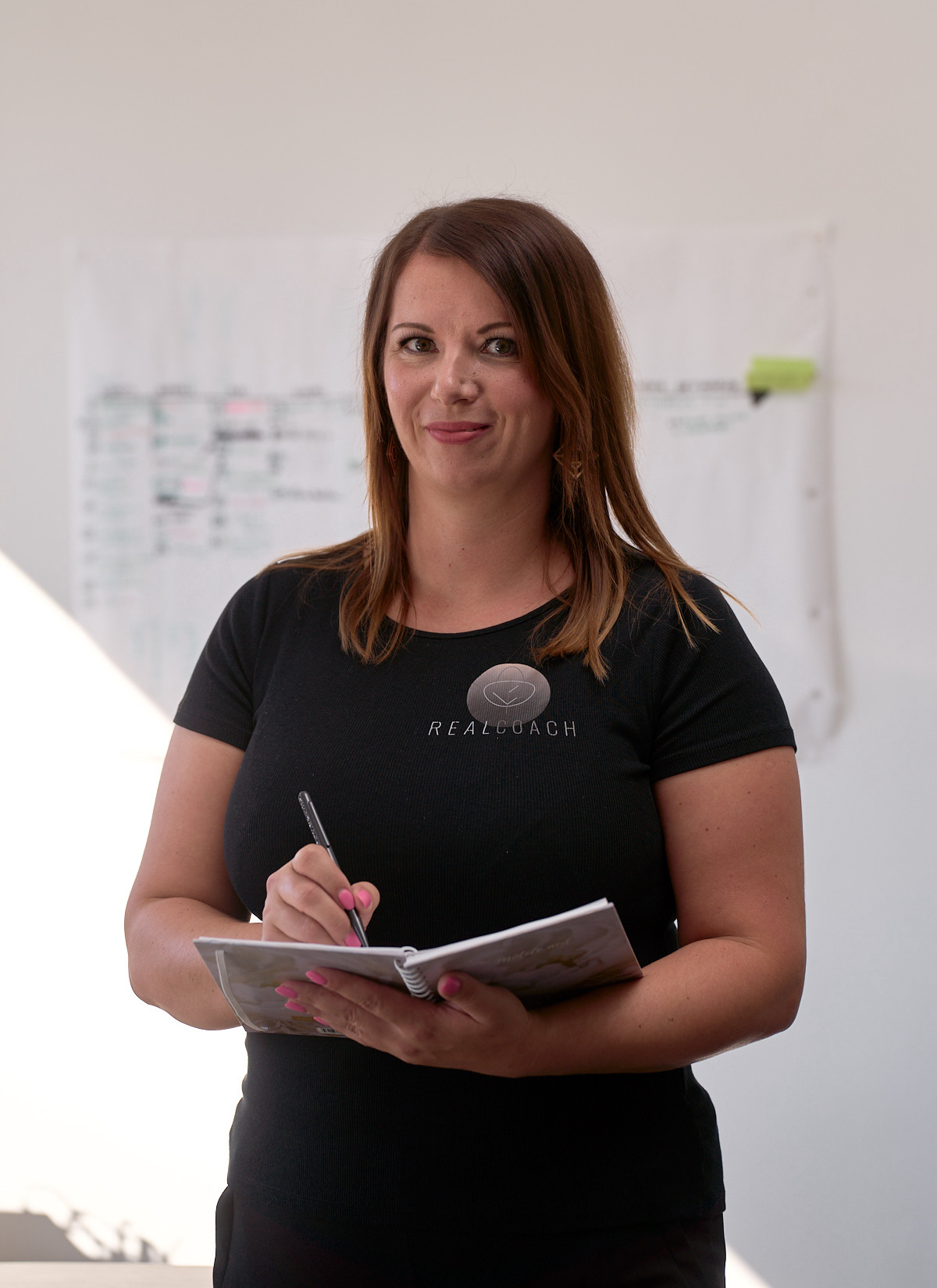Quick check of team performance
The upcoming summer, with its slightly slower pace in terms of work, is a great time to engage in more strategic planning and vision setting. Still, to start working with renewed vigor after the holidays. But in order to know in which (right!) direction to start moving with your team in the fall, you need to find out where you are now. You need to identify a starting point! For example, what has been preventing you from achieving full success so far and what you really need in order to reach maximum potential and at the same time a clear focus, pleasant collaborative synergy, good relationships and a safely open atmosphere.
Our recommendation: identify the starting point
Identify your team’s needs now, rest and collect your thoughts in the summer and step towards success with a clear knowledge in the fall. Sounds like a plan?!
Our offer: we do the work for you
Realcoach does the work for you! We conduct a personal interview with each team member, analyze the results, summarize the information, discuss together and consult you online. This way you will know exactly what factors are contributing to and hindering your team’s success, and on top of that, you will also receive a series of tips. Sounds like a vacation?!
Summer bonus: 3 coaching sessions for the manager (yes, free)
If you order teamwork diagnostics by June 15th, you will receive 3 additional coaching sessions for the manager during the summer months. This way you can rest, plan in the summer and roll up your sleeves with confidence in the fall. Sounds like what you need?!
Investment in the team’s success 159 €/in + VAT
Customer experience
 Sirli Vaher
Sirli Vaher
Team Lead & Product Owner
Fujitsu Persona
www.persona.ee
I currently have a very good comparison between the satisfaction survey and the Realcoach quick check. I certainly don’t claim that the satisfaction survey is not important, but thanks to the quick check, I learned more about the “soul life” of my team. And that is extremely important to me!
Such a quick check could probably be done myself, but I doubt if all team members would dare to open up to the manager in the same way as they do with a coach, and I also fear that no active manager actually has enough time for that.
Everyone benefited from the Fujitsu Persona team, because they had the opportunity to honestly and openly share their thoughts and feel that they matter. And I got an objective and realistic picture and confirmation of my “gut feeling”.
In addition, many issues emerged that I had not noticed myself, but which we can now start to solve.
I definately recommend!
Who and in what cases will benefit from the quick check?
What do you think how and do managers even know what a team needs most in order for cooperation to run smoothly, each member’s potential to be maximally realized, performance to increase, and the company to be successful? Do they rely on gut feelings and experience, which are not always necessarily wrong, or do they use satisfaction surveys to obtain this information, which are often cumbersome to conduct, the analysis of the results time-consuming, and the attitude of the participants lukewarm (“ah, the same questionnaire again, nothing will change anyway”)?
How do you identify employee satisfaction and factors inhibiting the functioning of teams in your company? Is it with a satisfaction survey? And what, if anything, is done with the information obtained?
What would you say when you find out that there is a more efficient and faster way than a satisfaction survey to find out about the slightly lame and attention-demanding (dys)functions of one or another team, and in addition, a series of tools and expert advice on how to get things working reliably and quickly (again)?
For a change from a satisfaction survey, try a quick check of team performance and get special tools and guidance tailored just for you.

Do you want to know what difficulties and challenges your team is really facing?
For that, first think about:
- what is the team’s ability to cooperate, the level of synergy, and the resulting efficiency?
- does the team set common goals and do everything possible to work together towards them?
- does everyone know the expectations and tasks related to their role and have the necessary tools for the job, including enough information?
- what are the team members’ mutual understanding, relationship dynamics, and individual attitudes?
This could reveal what your team really needs to be more effective, improve relationships, and overcome obstacles to smooth cooperation. I can support you in this, because it is often somewhat easier for people to open up to a third party than to their immediate manager.
In order to give you a realistic and informative picture and map the health of your team, I invite you to participate in a personal and systematic team performance check led by a third party, or coach.
How does it work?
Easy like 1-2-3-4, but focused and strategic
1.5-2h team leader: formulating expectations, goals and potential benefits of the process
1.5-2h in-depth interview with each team member to assess the team’s ability to collaborate based on structured and specially developed questions. Topics covered: clarity in goals (the team’s “why?”) and milestones, recognition and the need for it, required skills, clarity of tasks, work processes and responsibilities, the need and effectiveness of meetings, understanding the nature and needs of stakeholders, coping with change, supporting each other and yourself, and personal growth. Based on the information obtained during the interviews, we will prepare a structured overview and assessment of your team’s effectiveness.
1.5-2h team leader: initial summary of the interview results (average indicators and anonymous comments) to get an overview of the current situation.
5-6h team & leader: overview of the results of the in-depth interviews and discussion of what emerged during them; joint formulation of further strategy and agreements and preparation of an action plan.
Results
- Awareness of the strengths of oneself, fellow members, and the team as a whole increases;
- Awareness of the circumstances that hinder the effectiveness of teamwork, the so-called real problems and challenges, increases;
- Patterns and dynamics that limit team performance are seen;
- The needs of each other and the entire team are understood, problem areas and challenges are formulated;
- Roles and responsibilities and expectations for each other are clarified;
- Unity and enthusiasm to move forward together increase;
- A focus on the big picture and the future is formed, and a solution plan for the challenges that have emerged is prepared;
- A jointly formulated strategy and vision are prepared – a course is chosen towards which specific steps will be taken.
Having completed a quick check of your team’s performance within a few weeks to a few months, you may decide that you are able to solve the formulated challenges yourself. A good option, however, is to continue coaching your team with the same coach, during which you will significantly increase your performance over the next 6-12 months.
If you would like to know more about the quick team performance check, write to me at reesi@realcoach.ee

